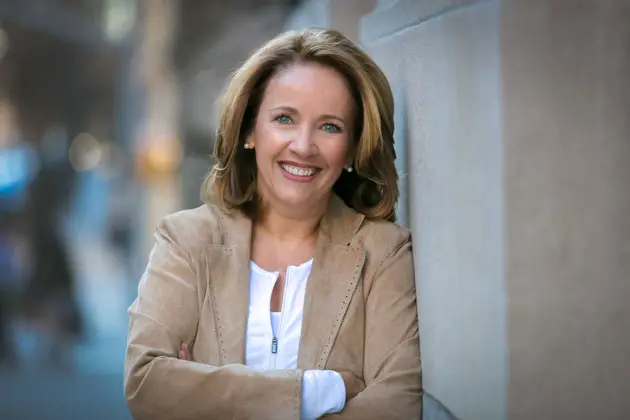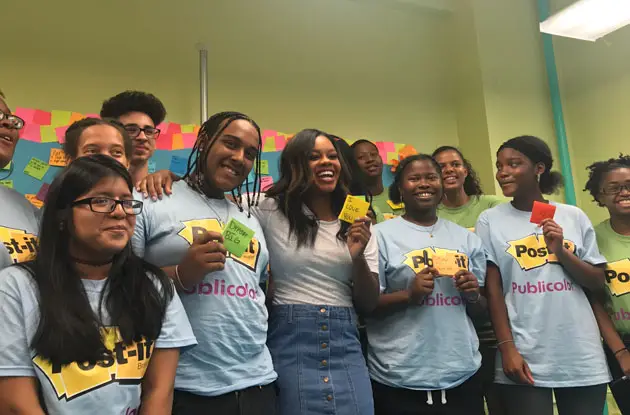In her new book From Cupcakes to Chemicals: How the Culture of Alarmism Makes Us Afraid of Everything and How to Fight Back, Julie Gunlock explains the culture of alarmism, why your buying choices shouldn’t haunt you, and how to figure out what products are actually safe for your family.
 |
From toxic tomatoes to poisonous pajamas, parents are increasingly bombarded with ‘expert’ studies that claim our consumer choices are putting our children’s lives at risk. Julie Gunlock’s book, From Cupcakes to Chemicals: How the Culture of Alarmism Makes Us Afraid of Everything and How to Fight Back (IWF Press), aims to demonstrate how alarmist misinformation is resulting in higher product prices, stressed-out families, and products that are actually less safe. We recently discussed how to separate the wheat from the chaff, and raise our children with perspective. As Gunlock says, “We shouldn’t be made to feel guilty about our perfectly healthy and appropriate choices.”
Who is the crusader aiming her “anti-alarmist” message at? “Well, every 15 seconds a mom is dealing with someone who’s asking for more snacks, or a drink, or they banged their head,” she says, and it’s those parents she hopes to bring some awareness to. “Statistically, it is the mothers—who simply don’t have the time to do the math behind these studies, to cross-reference the findings to get the real story—who are making most family purchasing decisions.”
How did you start on this journey to fight back against what you term the “conspiracy theory” of alarmism?
I had a baby! I didn’t know anything about these topics before I became a mom. Of course I didn’t care about baby lotion until I had a baby—but suddenly I was bombarded: BPAs in bottles, flame retardants in pajamas, endocrine disruptors in plastic toys. And what I was being told freaked me out! I breast-fed, I made my own baby food, I was doing the whole ‘natural mom’ thing but…I was being told I was doing it all wrong?! So I set out to review these studies myself.
How did this culture of alarmism start?
The suggestion of harm to our children is very hard to tune out. We have simply allowed people to have influence on us. It’s partly the 24-hour news cycle that is to blame: The rarest occurrence, the most extreme or horrifying event gets major media attention. We also live in an era of the ‘non-expert’ expert, where anyone who has a baby can apparently now be an expert in parenting.
What can parents do to maintain a healthy attitude about all these warnings and studies?
Parents need to find a great source that they trust—I list many reliable reporters, writers, and scientists in my book—and learn to follow the science, not the politics. Check bios, find out what the writer’s background is. Is the information coming from legitimate, unbiased, peer-reviewed studies? I’m not an expert, but I began to read the experts. I don’t listen to Jenny McCarthy [about vaccines, for example]; I listen to doctors and the medical and scientific community.
How do you recommend parents tackle a situation where their child is being ‘corrected’ by an alarmist parent?
Frankly, there are people who will never be convinced. They love their organic milk, they won’t touch the “dirty dozen” fruits and vegetables, they threw out their PVC garden hose…. You could literally sit these people down with the experts, with a farmer who uses GMO seeds, who plants golden rice that prevents blindness. But if you meet people who are nervous, unsure, spending money they don’t have, and not enjoying being a parent…then you have an opportunity to explain to them about junk science, about political agendas versus scientific purity. But you’ve still got to live in your neighborhood, and you’ve got to get along, so pick your battles wisely!
Do you think social media has accelerated this condition of alarmism?
Social media is good and bad. There are individuals on Facebook who not only want to evangelize about their food choices, they want to save your kid’s soul as well! But social media does give people an opportunity to fight back and educate in a way that is not quite as harsh as saying it to someone’s face.
Do you think by focusing on so many small studies, sometimes the underlying messages about overall well-being get lost?
Absolutely. When you tell people to worry about everything, they shut off things that they should be worrying about. For example, people panic about trace chemicals in cosmetics or deodorant, but they lie out in the sun all day! Well, to avoid cancer, stay out of the sun instead of worrying about your shampoo. When you muddy up the message, people end up ignoring the good advice.
In your book, why do you decry those people who say we should return to simpler times?
Well, in “simpler times,” women died in childbirth, lost their teeth, and had shorter lives. Just 100 years ago babies were dying before the age of 5 due to these now preventable diseases. Yet we are still seeing the damaging effects of the legacy of bad science with regard to vaccinations. Debunked studies that were retracted years ago are still trotted out by “experts,” and even pop up in my Facebook feed. And when people say they are returning to simpler times by growing their own vegetables—well, in the olden days people grew their own vegetables because of grinding poverty, not because of a distrust of supermarkets and a love of Pinterest. People just don’t remember what it was like in those days.
Julie Gunlock, mom to three active boys, is director of the Independent Women’s Forum’s Culture of Alarmism project. Before becoming a senior fellow at IWF, Gunlock served as a professional staff member on the Senate Homeland Security and Governmental Affairs Committee and on the House Homeland Security Committee, and on the staffs of Ohio Senators Mike DeWine and George Voinovich. Read Gunlock’s latest at iwf.org/blog.
Lucy Bayly is a New York-based writer, editor, and mother of two young boys who lives amongst a rapidly expanding pile of rainbow bracelets and Lego police vehicles.




















